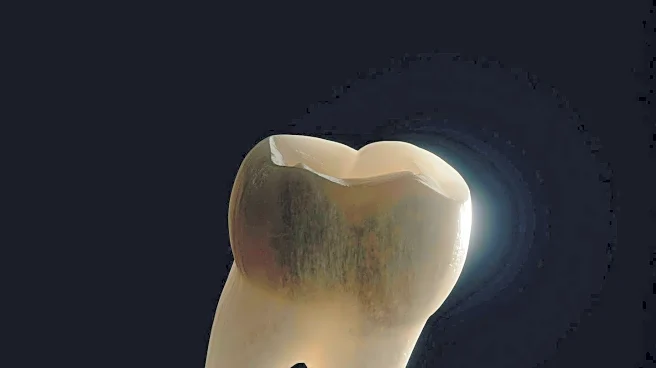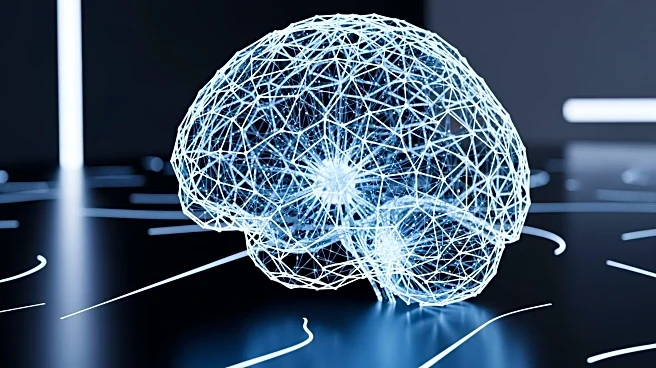What's Happening?
Sleep bruxism, or teeth grinding during sleep, affects approximately 8% of adults and is often undetected due to its occurrence during sleep. Dr. Subha Giri from the Mayo Clinic notes that individuals are usually unaware of the condition unless informed by a partner. The condition involves involuntary jaw-muscle activity, which can lead to dental damage if persistent. Factors contributing to sleep bruxism include genetic predisposition, stress, anxiety, and certain medical conditions like sleep apnea. Diagnosis often involves a sleep study, and treatment can range from lifestyle changes to the use of custom nightguards.
Why It's Important?
Sleep bruxism can significantly impact dental health, leading to tooth damage and increased sensitivity. It can also cause temporomandibular joint (TMJ) disorders, resulting in jaw and facial pain. The condition can disrupt sleep quality, leading to fatigue. Understanding and managing sleep bruxism is crucial for preventing long-term dental issues and improving overall sleep quality. Effective management can involve behavioral adjustments, stress management techniques, and in severe cases, medical interventions like Botox injections.









